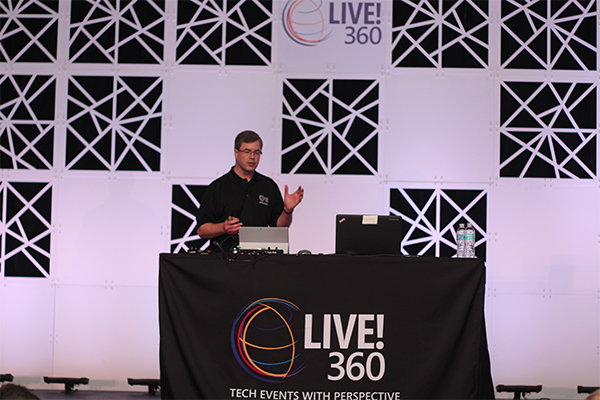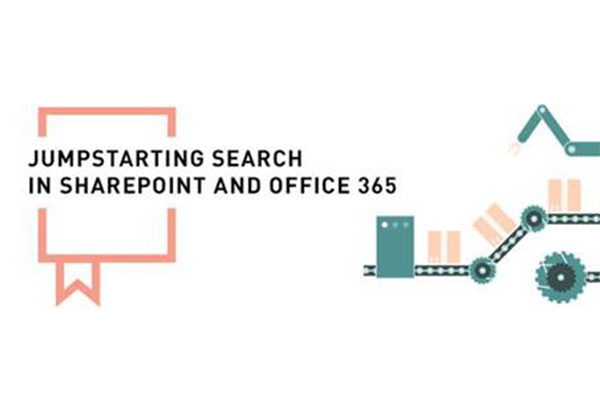
Live! 360 for this year is a wrap. Once again, this unique five-in-one event traveled to Orlando, FL for a week of hands-on education. If you missed, or better yet, if you were there and want a quick review of all the content from Visual Studio Live!, Tech Mentor, Office & Sharepoint Live!, SQL Server Live! and Modern Apps Live!, then here you go. As always, each individual event had keynote sessions. Here’s a look at our news coverage of those keynote presentations:
More
Posted by Lafe Low on 12/01/2017 at 12:18 PM0 comments

As Big Data and data analytics become more critical business functions, developers are turning more to R to support data mining and analysis apps. And since it's open source, you can incorporate R apps into your arsenal of business apps and keep the data divers happy. Whether you're new to R or looking to ramp up your R game, here are a few R tutorial blogs that can keep you on the right track.
More
Posted by Lafe Low on 10/27/2017 at 11:39 AM0 comments

Search doesn't often get the respect it deserves, and finding an expert on the topic can be a challenge. We caught up with search expert Agnes Molnar to hear some of her thoughts on what should go into an effective search process and protocol.
More
Posted by Lafe Low on 10/23/2017 at 11:54 AM0 comments

SQL Server is still the heavyweight—the juggernaut of enterprise-grade database management systems. If your organization is storing and managing your customer data with SQL Server and SQL Server Management Studio, and you’re the one driving the bus, chances are you could use a little help. Welcome to the world of SQL shortcuts. We took to the blog world to find some of the best, most cleverly crafted, and most time-saving SQL Server shortcuts.
More
Posted by Lafe Low on 10/11/2017 at 12:43 PM0 comments

DevOps and agile development practices have been—and continue to be—hot topics in the development world. How are they similar and how are they different? Is it really DevOps versus agile, or is it DevOps as well as agile, or even agile then DevOps? Knowing more about both philosophies and methodologies can help you determine which of both can be of the most help to your development teams. Thankfully, there is a plethora of resources out in the blogosphere. Here's a look:
More
Posted by Lafe Low on 09/19/2017 at 12:54 PM0 comments

Microsoft Azure has been around for a while now, so much so that it has reached a certain status—a certain level of credibility and market share that it has started to become a world unto itself. Diving into the blogosphere to see what's out there on Microsoft Azure is the proverbial experience of shooting fish in a barrel. Here's a few you should follow if you're interested in or using Microsoft Azure:
More
Posted by Lafe Low on 08/25/2017 at 1:36 PM0 comments

In today's post, Modern Apps Live! conference chair Rocky Lhotka explains why you should attend Live! 360 Orlando!
Modern applications leverage the power of all client devices from phones to tablets to desktops, new intuitive user experiences, the cloud, and your local computing resources to provide end users with the richest and best experience possible. This type of app is so compelling, and yet so complex to build, that we thought it was worth a conference unto itself.
More
Posted by Lafe Low on 08/15/2017 at 8:42 AM0 comments

In today's post, TechMentor Orlando co-chairs Sami Laiho and Greg Shields explain why you should join us at Live! 360 Orlando!
November for most of us is usually associated with cold and snow…and learning! Yet again this year TechMentor returns this November, co-located with the Live! 360 conference and ready to cap a fast-paced year with some high-impact IT knowledge sharing.
More
Posted by Lafe Low on 08/11/2017 at 2:34 PM0 comments

Office & SharePoint Live! conference co-chairs Andrew Connell and Matthew McDermott explain why you should join us at Live! 360 Orlando!
We are thrilled to invite you to Office & SharePoint Live!, an event that brings together the most informative and influential experts on Office 365 and SharePoint. This event shares no-hype, practical, independent perspectives about SharePoint 2013, SharePoint 2016, and Office 365.
The presenters and sessions we've selected to present at Office & SharePoint Live! in Orlando, Florida, on November 12-17 are best-in-class!
More
Posted by Lafe Low on 08/10/2017 at 10:13 AM0 comments

In today's post, SQL Server Live! co-chairs Andrew Brust and Thomas LaRock explain why you should attend Live! 360 Orlando!
The more the world of technology changes and grows, the more data and databases are the absolute center of the story. Accordingly, the Microsoft Data Platform is now a fleet of products and services.
More
Posted by Lafe Low on 08/09/2017 at 1:14 PM0 comments